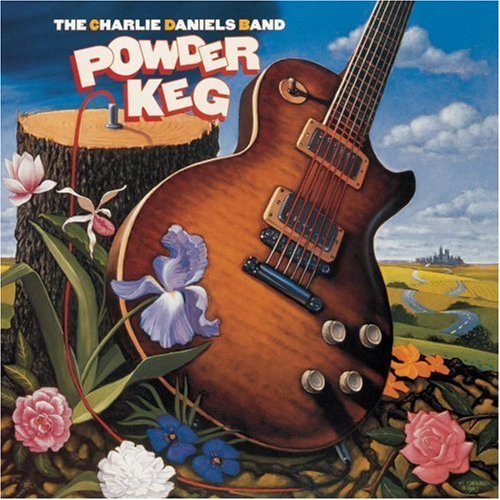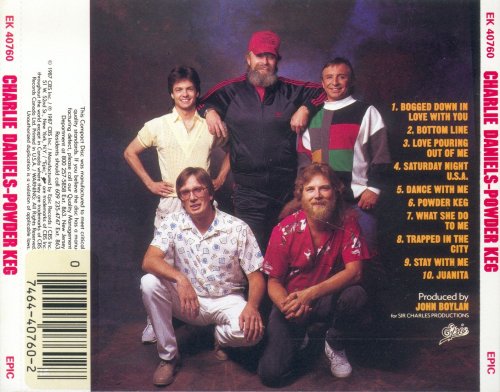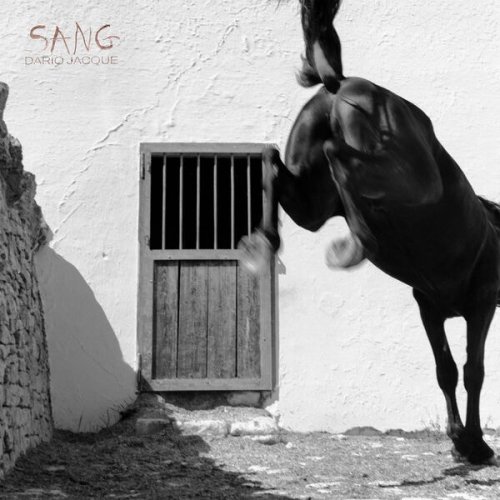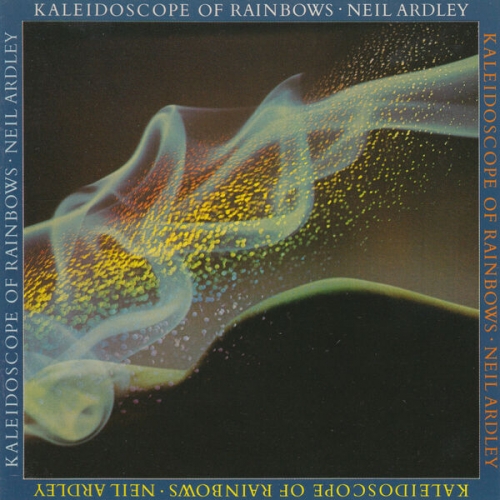The Charlie Daniels Band - Powder Keg (1987)

Artist: The Charlie Daniels Band
Title: Powder Keg
Year Of Release: 1987
Label: Epic
Genre: Blues Rock
Quality: FLAC (image+.cue,log,scans)
Total Time: 42:27
Total Size: 275 MB
WebSite: Album Preview
Tracklist:Title: Powder Keg
Year Of Release: 1987
Label: Epic
Genre: Blues Rock
Quality: FLAC (image+.cue,log,scans)
Total Time: 42:27
Total Size: 275 MB
WebSite: Album Preview
(01) [The Charlie Daniels Band] Bogged Down In Love With You
(02) [The Charlie Daniels Band] Bottom Line
(03) [The Charlie Daniels Band] Love Pouring Out Of Me
(04) [The Charlie Daniels Band] Saturday Night U.S.A.
(05) [The Charlie Daniels Band] Dance With Me
(06) [The Charlie Daniels Band] Powder Keg
(07) [The Charlie Daniels Band] What She Do To Me
(08) [The Charlie Daniels Band] Trapped In The City
(09) [The Charlie Daniels Band] Stay With Me
(10) [The Charlie Daniels Band] Juanita
A talented and showy fiddler, Charlie Daniels and his band fuse hardcore country with a hard-edged Southern rock, boogie, and blues. The group — which has had a rotating cast of musicians over the years — has always been known for its instrumental dexterity, but Daniels and company were also notorious for their down-home, good-old-boy attitude; in the early '80s, they became a virtual symbol of conservative country values. Daniels and his band experienced the height of their popularity at the end of the '70s and early '80s, but they remained a popular concert attraction well into the '90s.
Daniels was born and raised in North Carolina, playing fiddle and guitar in several bands during his teenage years. At the age of 21, he decided to become a professional musician, assembling an instrumental rock & roll combo called the Jaguars. The group landed a recording session for Epic Records in 1959 with Bob Johnson, who would later become Columbia Records' leading folk and country producer. The record didn't receive much attention, but the band continued to play and Daniels continued to write songs. One of his originals, "It Hurts Me," was recorded by Elvis Presley in 1963. By the late '60s, it had become clear that the Jaguars weren't going to hit the big time, so Johnson recommended to Daniels that he move to Nashville to become a session musician. Daniels followed the advice and became one of the most popular fiddlers in Nashville. He played on several Bob Dylan albums — Nashville Skyline, Self Portrait, New Morning, and Dylan — as well as Ringo Starr's 1970 record Beaucoups of Blues. He also became part of Leonard Cohen's touring band in the late '60s and produced the Youngbloods' Elephant Mountain album around the same time.
Daniels cut an album for Capitol Records in the early '70s that was ignored. In 1972, he formed the Charlie Daniels Band, using the Southern rock of the Allman Brothers as a blueprint. The band comprised Daniels (lead guitar, vocals, fiddle), lead guitarist Don Murray, bassist Charlie Hayward, drummer James W. Marshall, and keyboardist Joe DiGregorio. The formula worked, and in 1973 they had a minor hit with "Uneasy Rider," which was released on Kama Sutra Records. In 1974, they released Fire on the Mountain, which became a gold record within months of its release; the album would eventually go platinum. Its successor, 1975's Nightrider, did even better, thanks to the Top 40 country hit "Texas." Saddle Tramp, released in 1976, became his first country Top Ten album, going gold.
Throughout the mid-'70s, the Charlie Daniels Band pursued a Southern rock direction. They were moderately successful, but they never had a breakthrough hit either on the pop or country charts. By the late '70s, Daniels sensed that the audience for Southern rock was evaporating, so he refashioned the band as a more straightforward country band. The change paid off in 1979 when the single "The Devil Went Down to Georgia" became a number one hit, crossing over into the pop charts, where it hit number three. The song was named the Country Music Association's Single of the Year and helped its accompanying album, Million Mile Reflections, become a multi-platinum success.
Daniels wasn't able to follow "The Devil Went Down to Georgia" with another blockbuster single on the country charts but, ironically, he had several rock crossover successes in the years following the success of Million Mile Reflections: Full Moon (1980) went platinum and Windows (1982) went gold. Although he continued to sell respectably throughout the '80s, he didn't have a big hit until 1989's Simple Man, which went gold. In the '90s, his records failed to chart well, although he remained a popular concert draw, a trend that continued through into the 21st century.
During the first decade of the new millennium, Daniels quietly transitioned from major labels to independents, releasing records on Blue Hat and Audium, garnering some headlines in 2003 with his pro-Iraq War anthem "This Ain't No Rag, It's a Flag," a song popular enough to launch a spinoff book, Ain't No Rag. Two years later, Daniels established a long-running relationship with Koch in 2005 with Songs from the Longleaf Pines. Daniels' albums for Koch ran the gamut from bluegrass to bluesy country-rock, punctuated with holiday collections and live records, or thematic compilations like 2010's patriotic The Land That I Love. Daniels was inducted into the Grand Ole Opry in 2007. Over the next decade, Daniels played regular concerts and delivered new albums every few years, including 2013's Hits of the South and 2014's Off the Grid: Doin' It Dylan. In 2016, Daniels released Night Hawk — a loose concept album celebrating cowboys — and was also inducted into the Country Music Hall of Fame.
Daniels was born and raised in North Carolina, playing fiddle and guitar in several bands during his teenage years. At the age of 21, he decided to become a professional musician, assembling an instrumental rock & roll combo called the Jaguars. The group landed a recording session for Epic Records in 1959 with Bob Johnson, who would later become Columbia Records' leading folk and country producer. The record didn't receive much attention, but the band continued to play and Daniels continued to write songs. One of his originals, "It Hurts Me," was recorded by Elvis Presley in 1963. By the late '60s, it had become clear that the Jaguars weren't going to hit the big time, so Johnson recommended to Daniels that he move to Nashville to become a session musician. Daniels followed the advice and became one of the most popular fiddlers in Nashville. He played on several Bob Dylan albums — Nashville Skyline, Self Portrait, New Morning, and Dylan — as well as Ringo Starr's 1970 record Beaucoups of Blues. He also became part of Leonard Cohen's touring band in the late '60s and produced the Youngbloods' Elephant Mountain album around the same time.
Daniels cut an album for Capitol Records in the early '70s that was ignored. In 1972, he formed the Charlie Daniels Band, using the Southern rock of the Allman Brothers as a blueprint. The band comprised Daniels (lead guitar, vocals, fiddle), lead guitarist Don Murray, bassist Charlie Hayward, drummer James W. Marshall, and keyboardist Joe DiGregorio. The formula worked, and in 1973 they had a minor hit with "Uneasy Rider," which was released on Kama Sutra Records. In 1974, they released Fire on the Mountain, which became a gold record within months of its release; the album would eventually go platinum. Its successor, 1975's Nightrider, did even better, thanks to the Top 40 country hit "Texas." Saddle Tramp, released in 1976, became his first country Top Ten album, going gold.
Throughout the mid-'70s, the Charlie Daniels Band pursued a Southern rock direction. They were moderately successful, but they never had a breakthrough hit either on the pop or country charts. By the late '70s, Daniels sensed that the audience for Southern rock was evaporating, so he refashioned the band as a more straightforward country band. The change paid off in 1979 when the single "The Devil Went Down to Georgia" became a number one hit, crossing over into the pop charts, where it hit number three. The song was named the Country Music Association's Single of the Year and helped its accompanying album, Million Mile Reflections, become a multi-platinum success.
Daniels wasn't able to follow "The Devil Went Down to Georgia" with another blockbuster single on the country charts but, ironically, he had several rock crossover successes in the years following the success of Million Mile Reflections: Full Moon (1980) went platinum and Windows (1982) went gold. Although he continued to sell respectably throughout the '80s, he didn't have a big hit until 1989's Simple Man, which went gold. In the '90s, his records failed to chart well, although he remained a popular concert draw, a trend that continued through into the 21st century.
During the first decade of the new millennium, Daniels quietly transitioned from major labels to independents, releasing records on Blue Hat and Audium, garnering some headlines in 2003 with his pro-Iraq War anthem "This Ain't No Rag, It's a Flag," a song popular enough to launch a spinoff book, Ain't No Rag. Two years later, Daniels established a long-running relationship with Koch in 2005 with Songs from the Longleaf Pines. Daniels' albums for Koch ran the gamut from bluegrass to bluesy country-rock, punctuated with holiday collections and live records, or thematic compilations like 2010's patriotic The Land That I Love. Daniels was inducted into the Grand Ole Opry in 2007. Over the next decade, Daniels played regular concerts and delivered new albums every few years, including 2013's Hits of the South and 2014's Off the Grid: Doin' It Dylan. In 2016, Daniels released Night Hawk — a loose concept album celebrating cowboys — and was also inducted into the Country Music Hall of Fame.

![The Mood Mosaic - Erotheque (Unleashing Groovy Musical Lust) (2026) [Hi-Res] The Mood Mosaic - Erotheque (Unleashing Groovy Musical Lust) (2026) [Hi-Res]](https://www.dibpic.com/uploads/posts/2026-02/1770314023_cover.jpg)



![James Fernando - Philly 3 (2026) [Hi-Res] James Fernando - Philly 3 (2026) [Hi-Res]](https://img.israbox.com/img/2026-02/06/x1z1d5tgfw7831grgh5do6jls.jpg)



